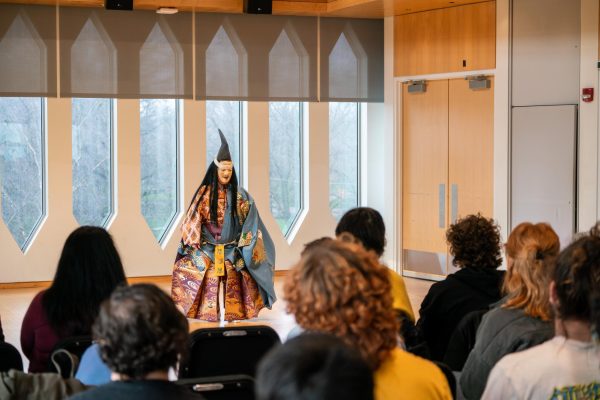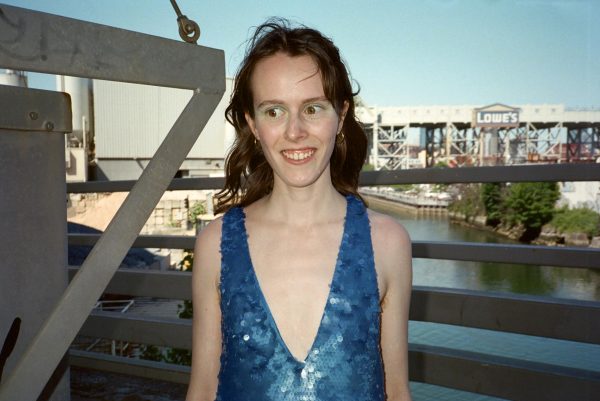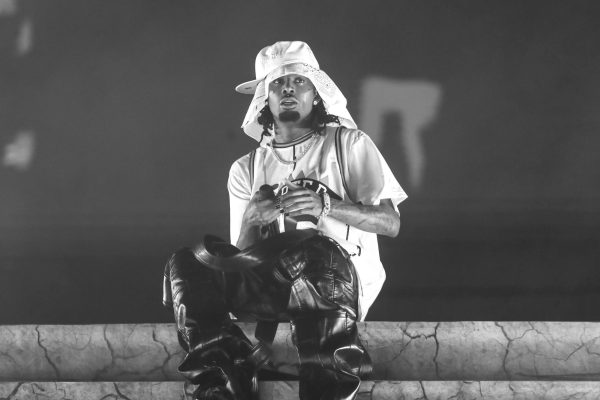“Crimes of Grindelwald” Falls Short of Predecessor
There are few franchises with a stronger fan base than J.K. Rowling’s Wizarding World — particularly among our generation of 20-somethings who grew up dreaming of centaurs, phoenixes, dragons, and hippogriffs. This is why the lackluster Fantastic Beasts and Where to Find Them: The Crimes of Grindelwald came as such a disappointment.
From the get-go, The Crimes of Grindelwald is a darker movie than its predecessor. The focus is no longer on colorful creatures — instead, the opening is a gruesome scene of a captive Grindelwald, played by Johnny Depp, chained and allegedly voiceless. He predictably doesn’t remain quiet for long, and much of the film follows his deadly exploits. Low-lit shots and stark colors are featured throughout, mirroring the shift in focus from one wizard’s magical adventures to the emergence of a genocidal cult determined to subjugate all non-magical people and start a war that will drastically transform the world.
The beasts are not the only thing we see less of in this installment; the endearing partnership between Newt Scamander and Jacob Kowalski, played by Eddie Redmayne and Dan Fogler, respectively, also receives less screen time. The story’s dark shift to focus on Grindelwald made this transition inevitable, but it is unfortunate given that the two characters shine in the little time they spend together and add some much-needed lightheartedness to the somber plotline.
In their absence are a plethora of new characters and plot threads, many of which have little, if any, payoff. The biggest issue with The Crimes of Grindelwald is that it is too convoluted. Rowling’s expertise lies in writing books, where there is more room to explore smaller details that ultimately have little impact on the story as a whole. Despite its impressive 134-minute run time, the script still leaves several threads and relationships unresolved and undeveloped.
The one new character who works remarkably well is Depp’s Grindelwald. Voldemort, the main villain of the original Harry Potter series, was so monstrous that only the worst of wizardkind could conceivably follow him. But with Grindelwald, Rowling paints a compelling picture of a brilliant demagogue in a time of impending crisis and global insecurity. Grindelwald is intelligent and persuasive like few villains in blockbuster movies are, carefully manipulating public opinion to convince audiences he is in the right.
Unfortunately, when not focusing on Grindelwald’s impending war at large, the movie has many elements that don’t work. The tonal shift from the first movie is completely incongruous with the returning characters, most of whom are still a central focus of this film. The awkward Newt and unceasingly positive Kowalski seem absurdly out of place except for when they’re with each other, fumbling through interactions in a world that is becoming ever more dangerous and nefarious.
Another factor that may deter viewers is the inconsistency in storylines introduced throughout this film. Purists invested in the Harry Potter canon might cringe at some of the clumsy name drops and incongruous plot points which attempt to draw from the original series. These choices stretch the audience’s suspension of disbelief that may make the film unpalatable for some.
The Crimes of Grindelwald, while not a complete disaster, has more than its fair share of problems. If you are a fan of the magic and wonder of the original movies and the first Fantastic Beasts, then this film will disappoint you. But if you’re interested in a darker look at Rowling’s Wizarding World, then this movie is worth a watch. Of course, as this is only the second of five planned Fantastic Beasts films, avid fans of the series and casual moviegoers alike must wait for future installments — the next of which has a tentative release date of Nov. 20, 2020 — to know exactly what is to come of Rowlings’ characters.









